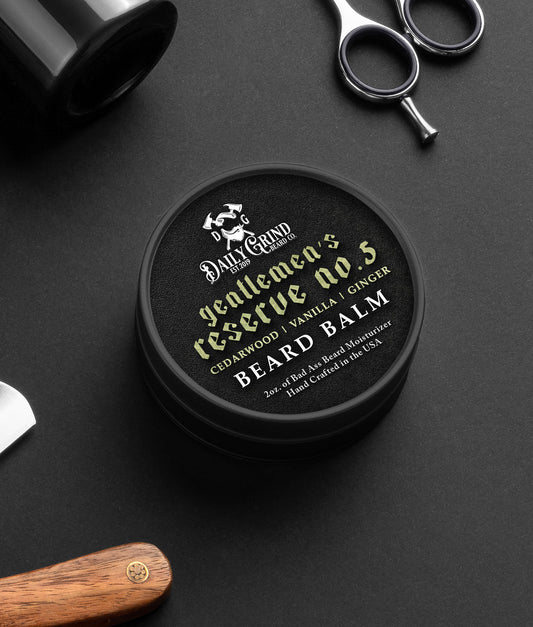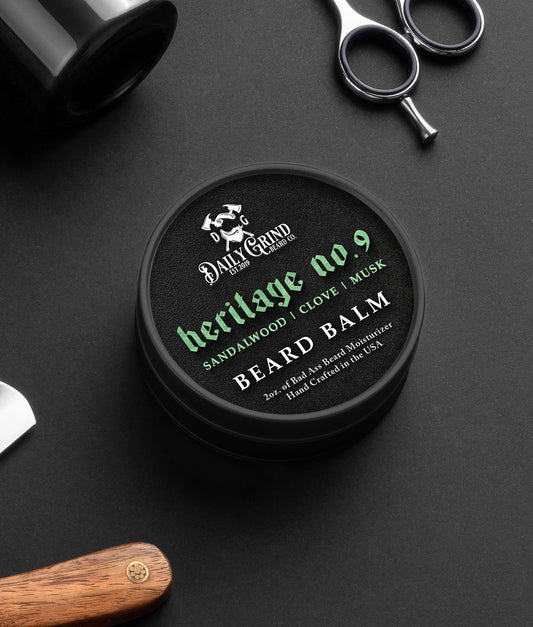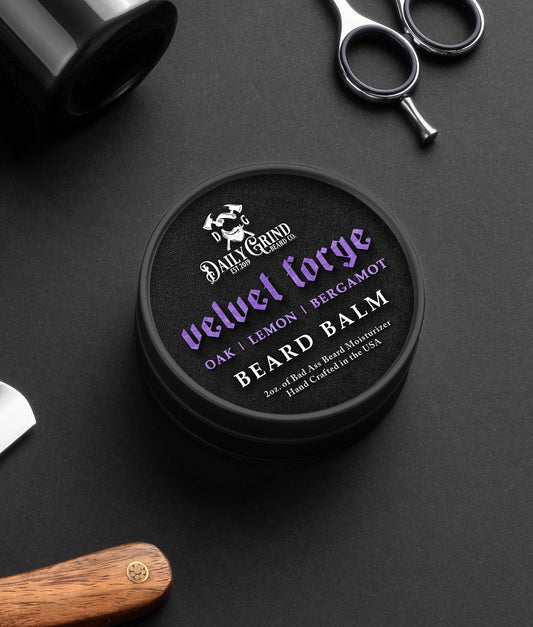
Beard Oil vs Beard Butter: What's best for Grooming Your Beard
Share
Introduction
Have you ever found yourself standing in the grooming aisle, puzzled by the array of beard products available? With so many options, it can be challenging to determine which product is best suited for your beard. The two most popular beard care products are beard oil and beard butter, but which one should you choose? In this comprehensive guide, we will delve into the world of beard oil vs beard butter, comparing their benefits, ingredients, and uses to help you make the best decision for your facial hair.
Understanding Beard Oil
What is Beard Oil?
Beard oil is a lightweight, fast-absorbing grooming product designed to moisturize and nourish your beard and the skin beneath it. It's formulated with a blend of essential oils and carrier oils that work together to keep your beard looking and feeling healthy, soft, and well-maintained.
Benefits of Beard Oil
Beard oil offers several benefits, including:
- Moisturizing and hydrating your beard and the skin underneath
- Softening coarse facial hair
- Reducing beard itch and dandruff
- Promoting healthy beard growth
- Adding a light, pleasant fragrance to your beard
Ingredients in Beard Oil
The primary ingredients in beard oil are carrier oils and essential oils. Carrier oils, such as jojoba, argan, and sweet almond oil, form the base of most beard oils and provide hydration, nourishment, and protection. Essential oils, like tea tree, lavender, or cedarwood, contribute their unique scents and additional skin and hair benefits.
Discovering Beard Butter
What is Beard Butter?
Beard butter, also known as beard balm or beard cream, is a thicker, more substantial grooming product that combines the moisturizing properties of beard oil with the styling and shaping benefits of a wax or pomade. It's a versatile solution for those looking to condition, style, and tame their beards.
Benefits of Beard Butter
Some advantages of using beard butter include:
- Deeply conditioning and moisturizing your beard
- Providing a light to medium hold for styling and shaping
- Taming flyaway hairs and frizz
- Encouraging healthy beard growth
- Offering a more extended-lasting scent compared to beard oil
Ingredients in Beard Butter
Beard butter typically consists of a blend of natural oils, butters, and waxes. Common ingredients include shea butter, cocoa butter, beeswax, and similar carrier oils found in beard oil, such as jojoba and argan oil.
Comparing Beard Oil and Beard Butter
Texture and Consistency
Beard oil has a thin, liquid consistency that absorbs quickly into your facial hair and skin, making it an excellent choice for lightweight moisturization. On the other hand, beard butter has a thicker, creamier texture that provides more substantial conditioning and a light hold for styling purposes.
Application and Usage
When it comes to application, beard oil is relatively straightforward. Just apply a few drops to your hands, rub them together, and massage the oil into your beard and skin. Beard butter, while still easy to apply, requires you to scoop out a small amount, melt it between your hands, and then work it into your beard, focusing on both hair and skin.
Beard Length and Style
Beard oil is an excellent choice for all beard lengths, but it's particularly suited for shorter beards and stubble as it quickly penetrates the hair and skin without leaving a greasy residue. Beard butter is ideal for medium to long beards, as it provides the extra hold and control necessary for taming and shaping your facial hair. Both can be used for all trending beard styles.
Fragrance and Scent
Both beard oil and beard butter can contain fragrances, with beard oil often having a lighter, more subtle scent. Beard butter tends to have a more extended-lasting fragrance due to its thicker consistency and increased staying power on your beard.
Making the Right Choice for Your Beard
When deciding between beard oil and beard butter, consider the following factors:
- Your beard length and style: If you have a shorter beard or prefer a more natural look, beard oil may be the best choice. For medium to long beards requiring more hold and control, beard butter is the way to go.
- Your skin type: If you have oily skin, beard oil might be too much for you, and beard butter would be a better option. On the other hand, if you have dry skin, beard oil can provide the lightweight hydration you need.
- Your desired level of hold and control: For those who want a styling product with some hold, beard butter is the better choice. If you only need conditioning and hydration, beard oil will suffice.
Tips for Applying Beard Oil and Beard Butter
To get the most out of your beard oil or beard butter, follow these simple tips:
- Apply the product to a clean, towel-dried beard for maximum absorption.
- Use a beard comb or brush to distribute the product evenly throughout your beard.
- Start with a small amount and add more as needed to avoid over-application.
- Experiment with different scents and brands to find the perfect match for your preferences.
Conclusion
In the battle of beard oil vs beard butter, there is no one-size-fits-all answer. The best choice for you depends on your beard length, style, skin type, and personal preferences. By understanding the differences and benefits of each product, you can make an informed decision and give your beard the care it deserves.
5 Unique FAQs
Q1: Can I use both beard oil and beard butter together?
A1: Yes, you can use both products together if you desire the benefits of both. Apply beard oil first for hydration, followed by beard butter for added conditioning and hold.
Q2: How often should I apply beard oil or beard butter?
A2: The frequency of application depends on your beard's needs and your personal preferences. Some people apply daily, while others may apply every 2-3 days. Experiment and find what works best for your beard.
Q3: Are beard oil and beard butter suitable for sensitive skin?
A3: Both products are generally safe for sensitive skin, but it's essential to choose products with natural ingredients and avoid artificial fragrances or harsh chemicals. If you're concerned about potential skin reactions, perform a patch test on a small area of your skin before applying the product to your beard.
Q4: Can I make my own beard oil or beard butter at home?
A4: Yes, you can create your own DIY beard oil or beard butter by combining various carrier oils, essential oils, and natural butters or waxes. This allows you to customize the ingredients, scents, and consistency to suit your personal preferences.
Q5: How long does it take to see the benefits of using beard oil or beard butter?
A5: You may notice an immediate improvement in the softness and manageability of your beard after the first use. However, it can take several weeks of consistent use for the full benefits to become apparent, such as reduced itchiness, improved beard growth, and healthier skin.




